
March 23, 2022
Compared to just a month ago, more Americans are now saying the United States should take on a major role in the conflict between Russia and Ukraine and concern about Russia’s global influence is increasing. About half of Americans are following news of Russia’s invasion extremely or very closely. And a similar proportion are extremely or very concerned about the possibility of the United States being pulled into a war with Russia.
There is widespread support for sanctions imposed by the United States on Russia, including a ban on importing Russian oil. And when asked about the tradeoff between sanctions on Russia and risks to the U.S. economy, 55% say the bigger priority is sanctioning Russia as effectively as possible, even at the expense of the U.S. economy.
Over the past month, Americans have become more inclined to say United States should take on a major role in the situation in Ukraine. Both Democrats and Republicans have become more supportive of the United States taking action regarding the Russian invasion of Ukraine. But Democrats continue to be more likely than Republicans to think the United States should take a major role.
Forty-seven percent are closely following news about the Russian invasion of Ukraine and 36% are giving it some attention. People who have been paying close attention to what’s happening in Ukraine are more inclined to support a role for the United States: 56% say it should be a major role and 37% think it should be a minor one. Among the 17% who are not following news about the war particularly closely, 33% think the United States should not play any role.
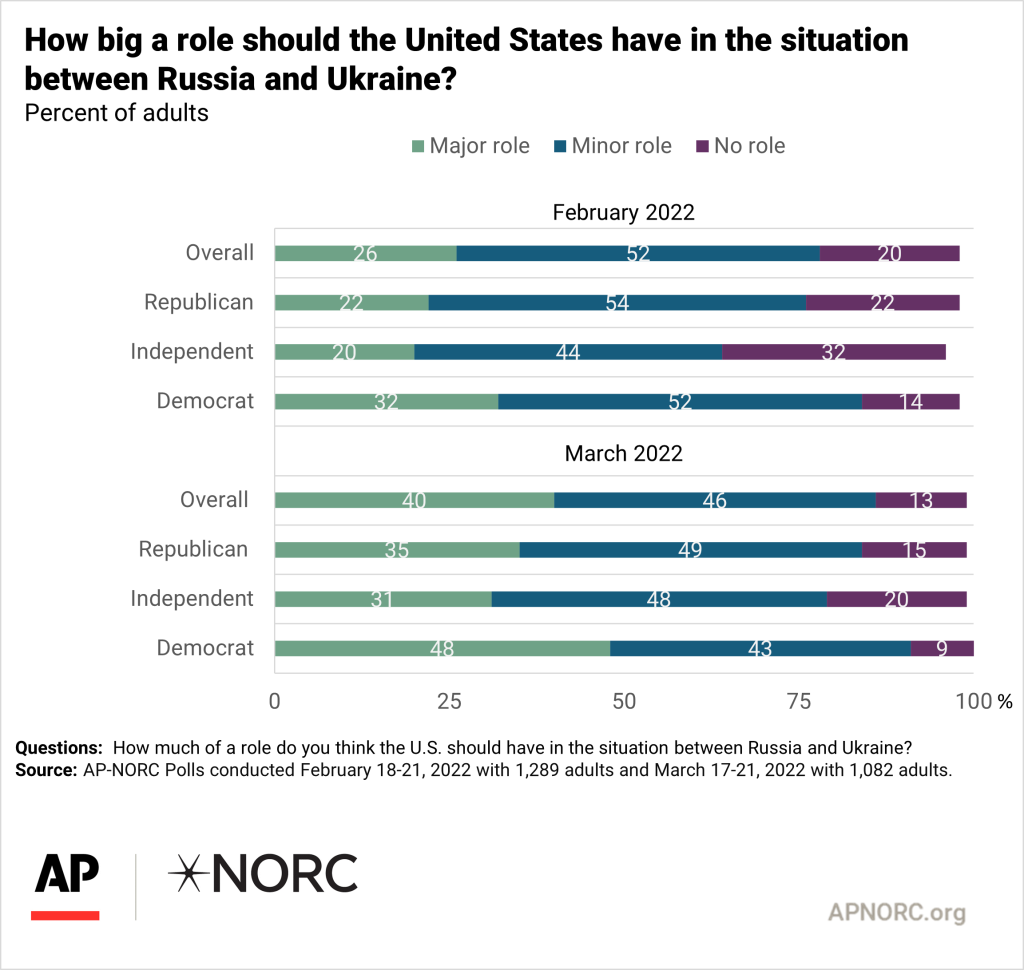
Most Americans support providing Ukraine with humanitarian support, and to a lesser degree approve of sending weapons and allowing Ukrainian refugees into the United States.
Those who think the United States should have a major role in the war in Ukraine strongly favor humanitarian support, providing weapons, and allowing refugees into the country. A majority of those who say the country should have a minor role also favor these responses to Russia’s invasion. About half of those who say the United States should not have any role support humanitarian assistance, but not providing weapons or accepting refugees.
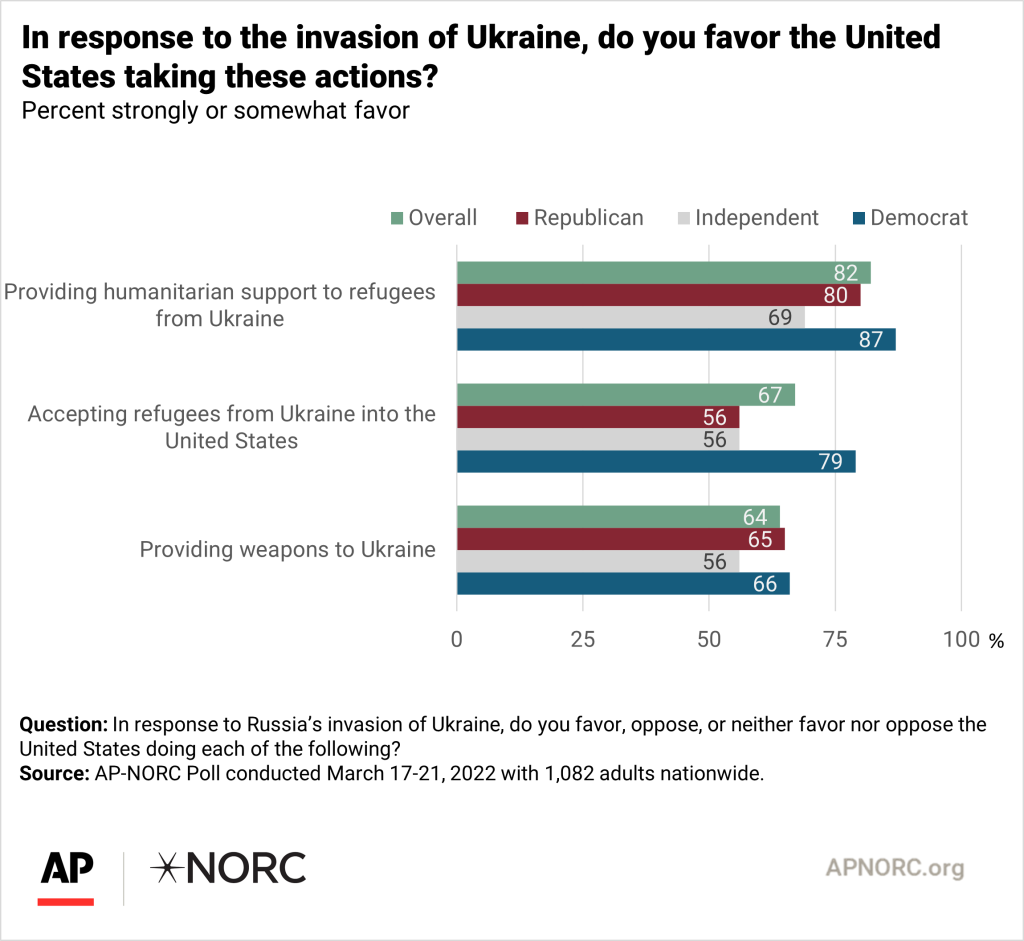
Republicans and Democrats are equally concerned about the possibility of the United States getting drawn into a war with Russia. People who are closely following the news about the war in Ukraine are more concerned about the United States getting involved than those paying little or no attention (52% vs. 35%).
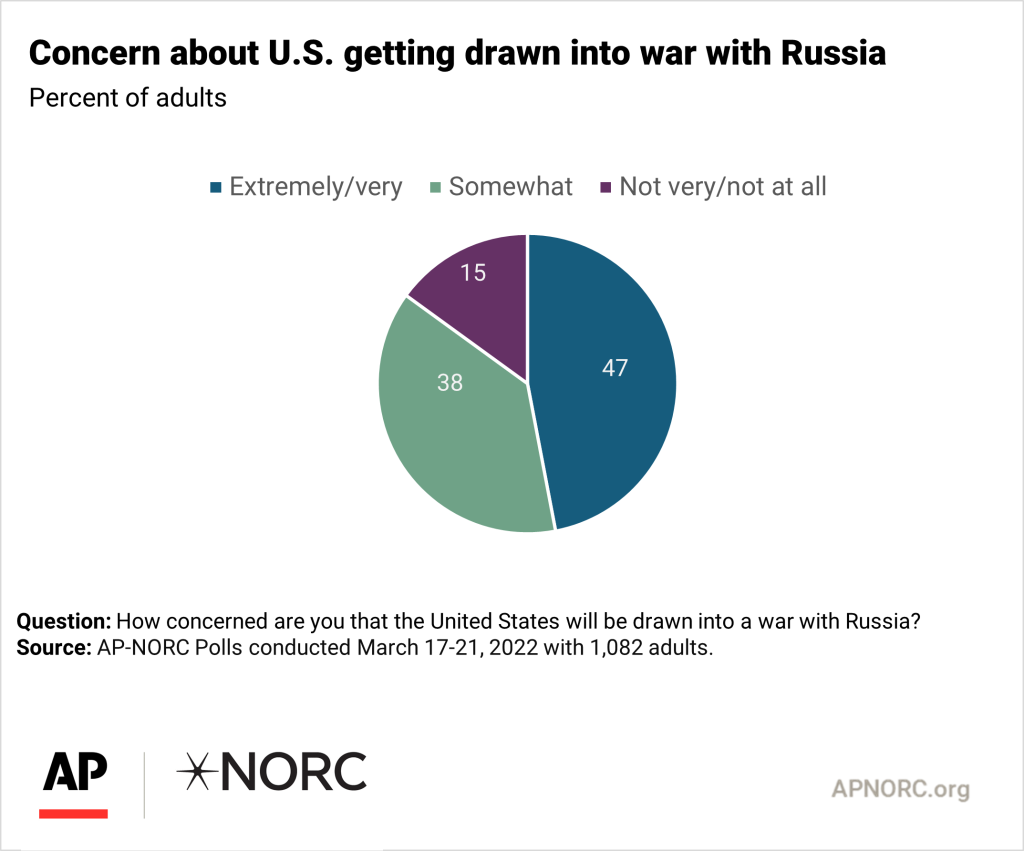
Sixty-four percent of Americans are extremely or very concerned about the threat to the United States from Russia’s influence around the world, up from 53% last month. Concern about Russia’s global influence is similar among Democrats and Republicans. Last month, Democrats were more likely than Republicans to be concerned, 59% vs. 50%.
People who are closely following news about Russia’s invasion of Ukraine are more inclined to be concerned about effect of Russia’s influence than those who are paying little or no attention, 71% vs. 52%.
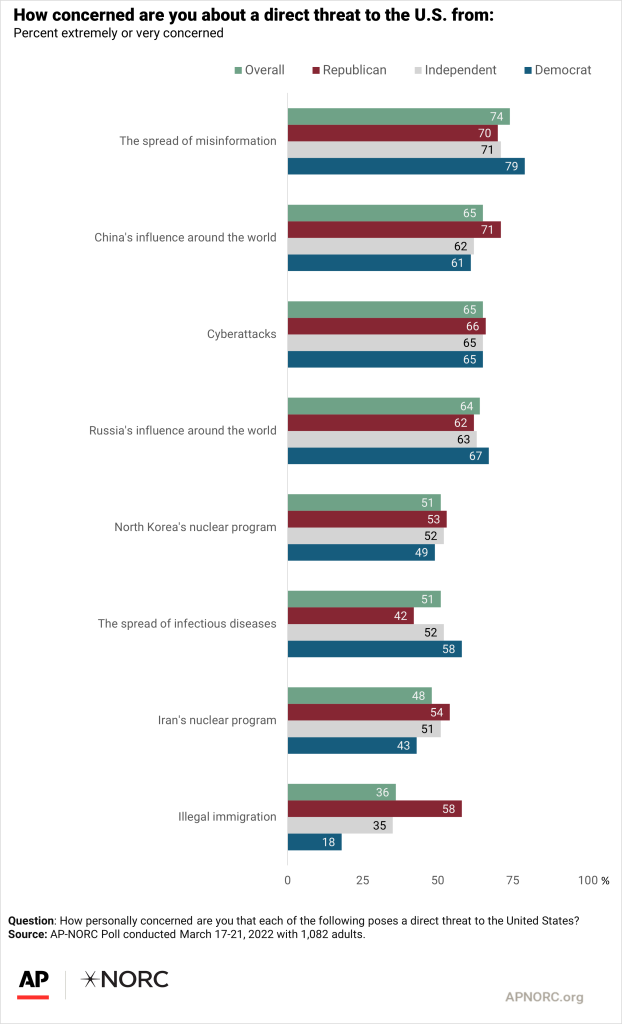
Most Americans, support the sanctions that the United States imposed on Russia. Democrats overwhelmingly approve of the economic sanctions in general, and specifically the ban on oil from Russia.
People who say the United States should have a role in the conflict – either major or minor – strongly support the sanctions the country has placed on Russia. In comparison, few of those who think the United States should not have a role in the war between Russia and Ukraine favor the sanctions.
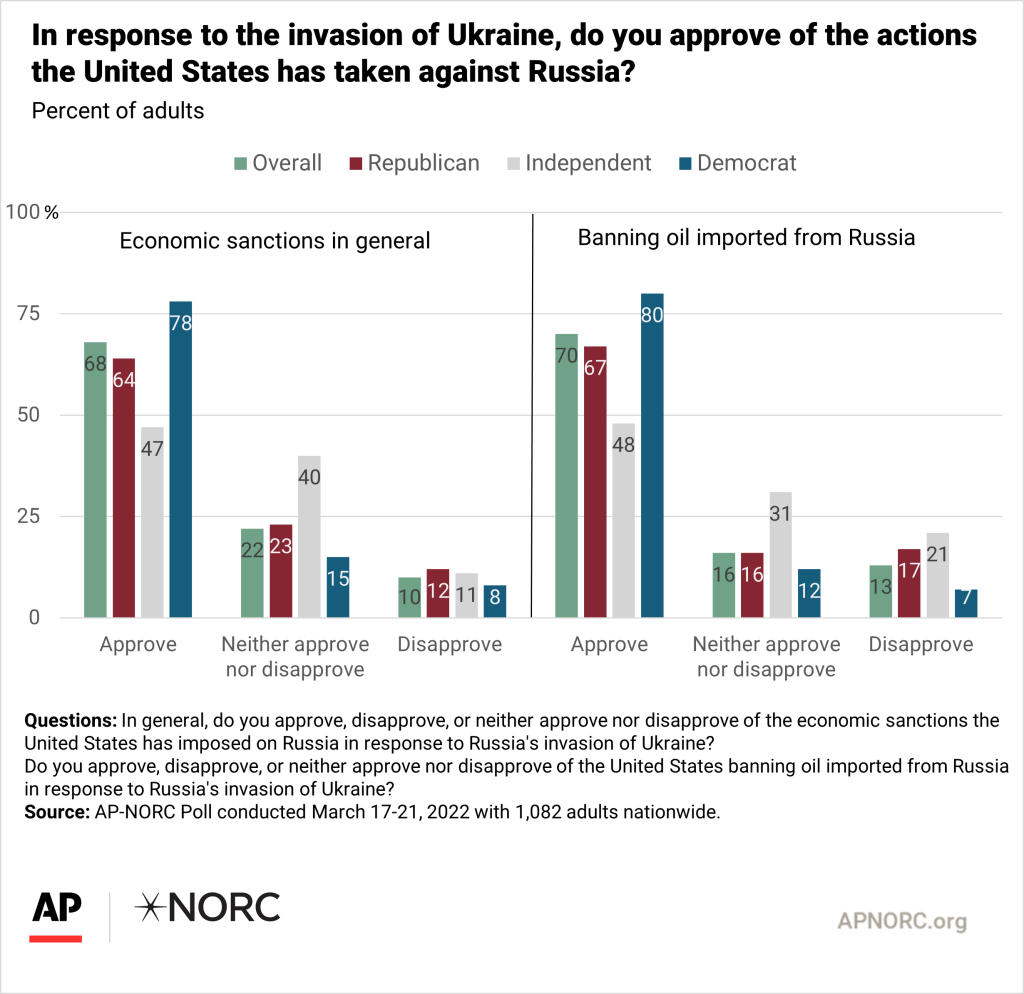
Asked about the tradeoff between sanctions on Russia and risks to the U.S. economy, 55% say the bigger priority is sanctioning Russia as effectively as possible, even at the expense of the U.S. economy. Forty-two percent think limiting damage to the U.S. economy should take precedence, even if it means sanctions on Russia are less effective. Seven in 10 Democrats say effective sanctions are the bigger priority, while Republicans are much more closely divided.
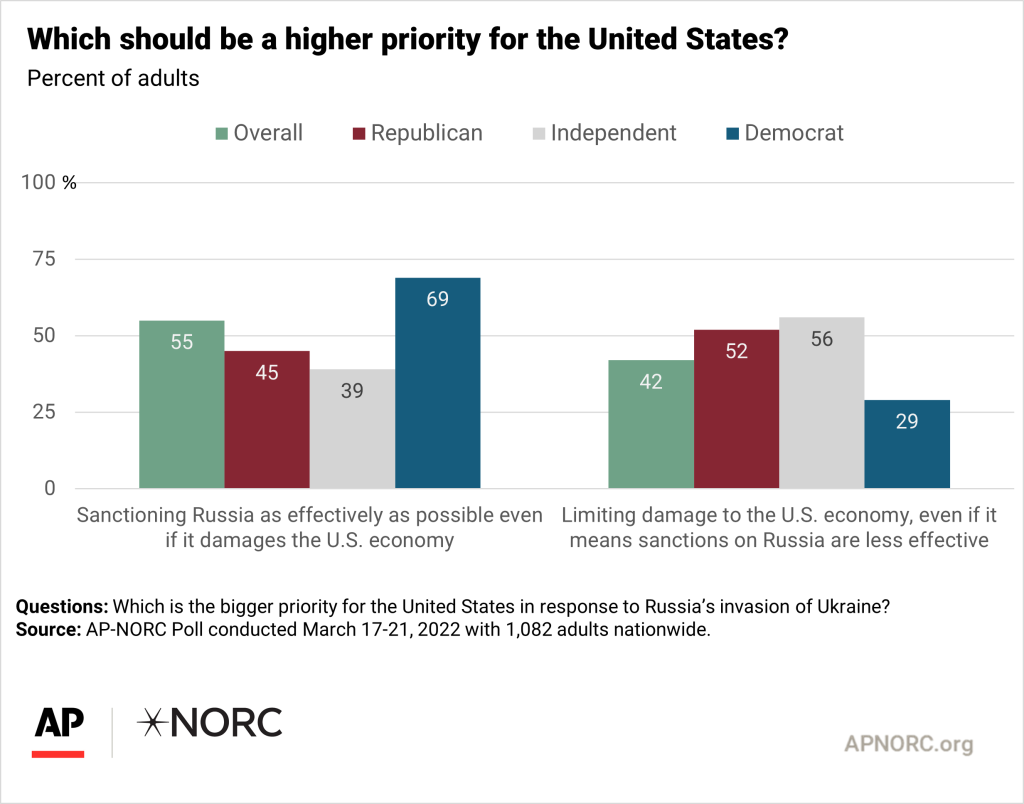
The nationwide poll was conducted March 17-21, 2022 using the AmeriSpeak® Panel, the probability-based panel of NORC at the University of Chicago. Online and telephone interviews using landlines and cell phones were conducted with 1,082 adults. The margin of sampling error is +/- 4.0 percentage points.
- Suggested Citation: AP-NORC Center for Public Affairs Research. (March 2022).“Support for policies to aid Ukraine” [https://apnorc.org/projects/support-for-policies-to-aid-ukraine]







